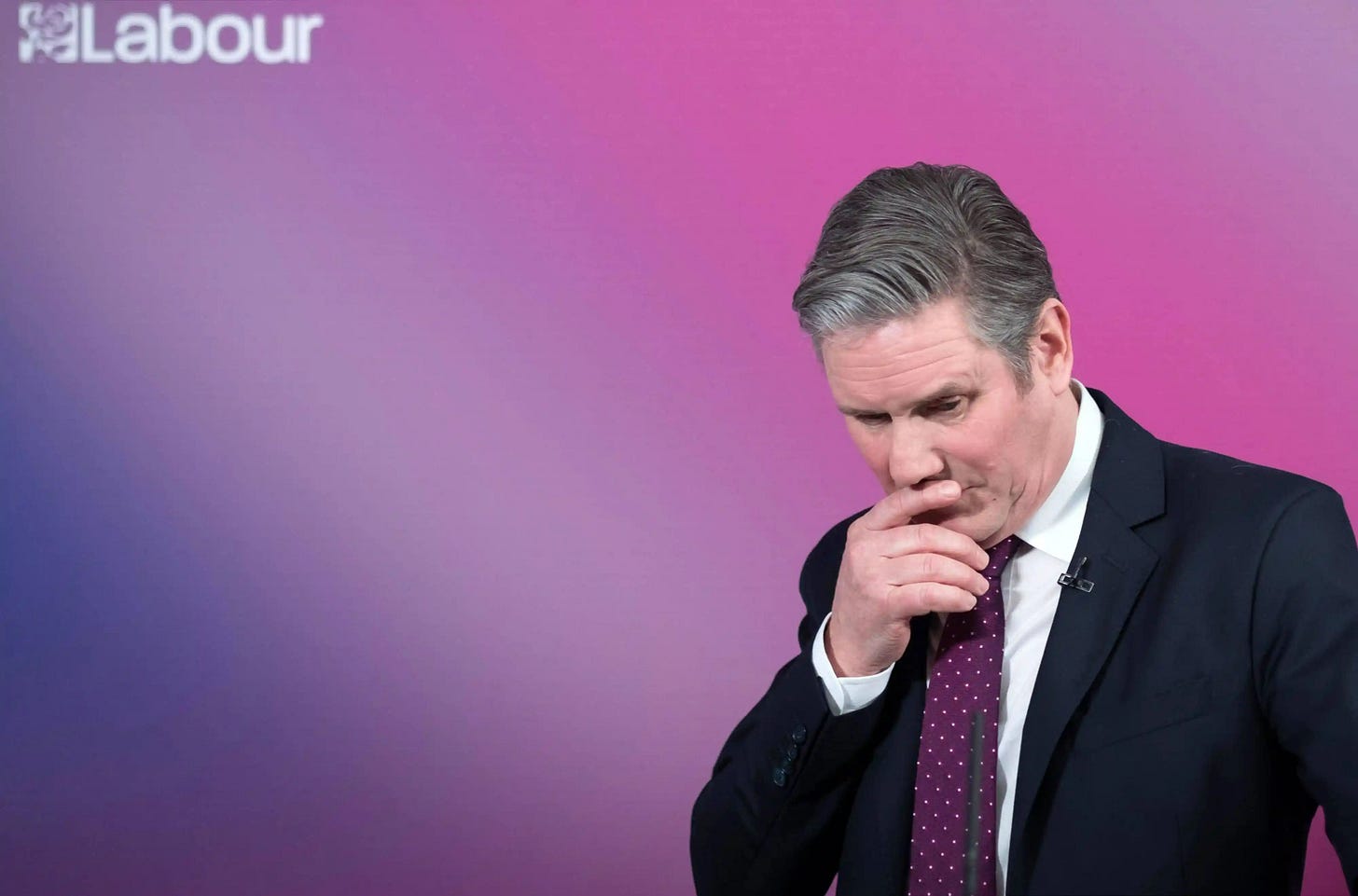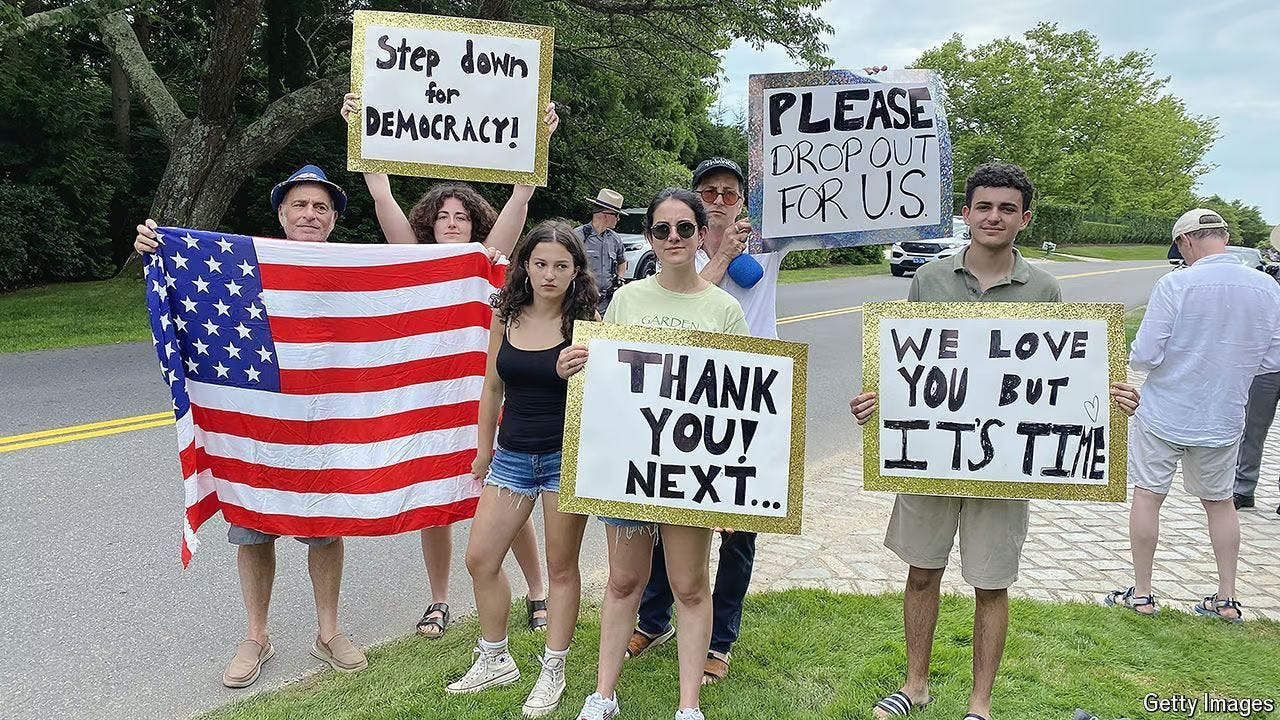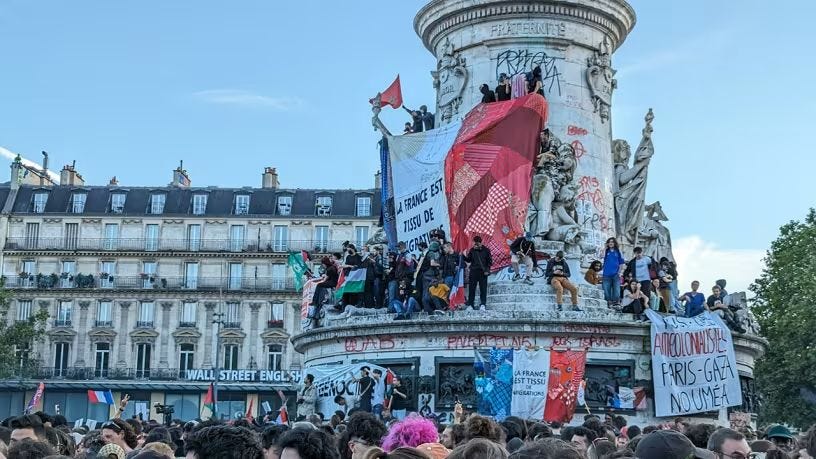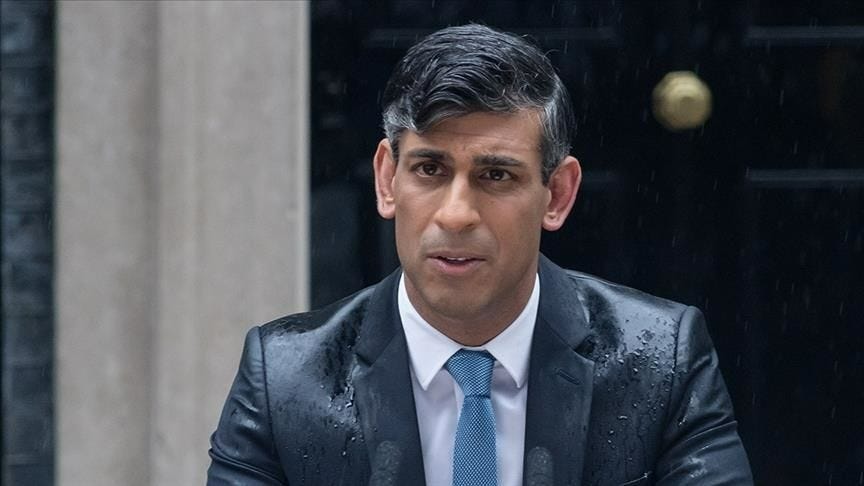The Year of Elections Part Deux: Navel Gazing Incumbents Lose Everywhere.
England, France even Iran go to the polls unexpectedly. And guess who won? Let's put it this way - Nobody left with the one who brought them.
In the last week change has rung out across the world. In the United Kingdom after 3 Prime Ministers in less then 4 years - the Tories finally gave the long suffering British people a chance to vote. No one thought Sunak would call the election so soon, other than half his team and a bunch of MP's hitting the betting shop, but Rish! is full of surprises and chose July 4th (6 months earlier then expected) as his Independence-er pop Election Day.
Macron - elitist/arrogant/slightly-short take your pick - called his own surprise election (2 years early) in a speech where he dared his detractors - nearly all of France - to vote in the hard right. Mon Dieu! And then, the Supreme Leader of Iran called an election to replace the former President and victim of an untimely helicopter crash. Voila! All these snap, unexpected elections. What could go wrong?
How'd we get here? What does it mean for the UK, France and Iran? And what does it mean for those elections in November for the Leader of the Free World, the US President.
Sunday, the 31st of June, France’s first round: After years of building profile and momentum, the far-right National Rally were on pace to achieve a majority in the French Parliament. It looked like The National Rally would take up Macron on his dare and the far-right was days away from government. Sacre bleu! A new Vichy France was in sight. Quel horror!! Despite leading the polls for years and despite their recent (just 3 weeks ago) victory in the European elections, Marine Le Pen's National Rally’s strong performance shocked the nation. It looked like Monsieur Macron had made a bad bet. Even worse Macron's party, Renaissance (??) had come in third, behind a hastily organised left-wing alliance, The New Popular Front, led by Macron nemesis - Melanchon.
Round 2: The threat of le Pen in power overcame the years of acrimony between Macron’s centrists and Melanchon’s Leftists. Together they pulled 200 third place candidates and consolidated the vote against the hard right. In the end the National Rally came in third after Christian Amanpour uttered 'you must be joking' in an interview with Le Pen exclaiming that her party was a bit left of Joe Biden! As a result the New (leftist) Popular Front came first. Macron held the center.

Oh and it was the highest vote turnout in years. It seemed a threat of a hard right win got the citizens out to vote. Vive le France. Now they just have to figure out how to govern….. Details, details.
Thursday the 4th July: After 14 years of Conservative rule, and 4 and half years of a chaotic Conservative majority the UK went to the polls to conduct a referendum on right -wing governance. When the polls closed, the expected was inevitable: Tories wiped out and Kier Starmer had achieved the greatest haul of Labour MPs since Tony Blair in 1997. But on closer look the results were surprising and meant a bigger change then even at first glance.
Rather than win outright, Starmer seemingly relied on 1: the collapse of the SNP in Scotland and 2: the rise of Reform at the cost of the Conservatives. Starmer raised Labour's profile in the UK up just 1.5% from their disaster performance in 2019. In fact, compared to 2017 - Jeremy Corbyn's first general election - Starmer's performance is actually disappointing, securing just 33.7% compared to Corbyn's 40% and seizing a total of 2 million fewer votes, but ending up with 180 more seats. Maybe outright socialists aren't as unelectable in the UK as it would seem? Ouch...
Starmer's landslide, his supermajority, his mandate relied more on general disgust for the Conservatives behavior and Sunak’s inabiity/care to rein it in than Labour policy. The Conservative vote collapsed to just 24%. Squeezed from the right by Reform, formerly Brexit, formerly UKIP, constantly Farage, Reform commanded a constant 14% voting block across the UK and took it all from the Conservative base. Oh and it was also one of their lowest turnouts in history.
To top it all off, 6 independents, including former labour leader Jeremy Corbyn won seats largely campaigning calling for a ceasefire in Gaza and pushing Labour to the left. It gives us a Parliament that might be the most raucous in decades. With firebrands like Farage, Corbyn and as many as 13 different parties elected PMQ's promise to be a riot waiting to happen. Sinn Fein promise to behave and the DUP promise to attend - we think.

Friday, July 5th Iran’s final round: Its a run-off between the hard liner, Said Jalili and the reformist Masoud Pezeshkian. Pezeshkian wins with close to 54% of the vote. His most loyal supporters were shocked he was even allowed on the ballot. And the first round of voting was a record low of 40% but the second round the turnout improved. The people were enthusiastic that they might actually get a reformer after years of repressive hard liners and a faltering economy. He ran on a platform of improving relations with the west and moderating the conservative outlook. He had especially harsh words for Iran’s morality police.
It seems by allowing him on the ballot the Ayatollah recognized some moderation is in order to reinforce the legitimacy of the government. Or maybe not. He might want to steer clear of helicopter rides for a bit.
Already a couple of trends are recognizable. There’s a perceptible shift away from incumbents who ignore the people and spend their time enforcing only one acceptable view of governing.The Tories were punished for seemingly spending all their time quarrelling amongst themselves while talking down to everyone else. They never recovered from Johnson’s abominable behavior during Covid and they kept it up all the way through Sunak’s term in government. The final coup de grace being the election betting scandal.
Macron’s party was seen as elitist and arrogant. They carried out tough economic reforms, jacked up the pension age and didn’t bring the people along with them. They paid for their mistakes but went from a certain last place to a second place loss, saving France from the hard right but sacrificing France's governability at the same time. And Iran’s hardliner government left no room for their people to breathe and their tough policies and relations with the West only increased sanctions that are starving the economy and leaving their people feeling hopeless. They made a bet that turnout would be low so they let the reformist get on the ballot. But the people surprised them and even with the lowest turnout not much above 50% enough people came out to vote against the hardliner.
The trend of hard right and hardliners making a lot of noise is noticeable throughout the world these days but in the end people when given a choice don’t want the hate and vitriol they bring. The people like their freedom and they want a bit more tranquility mixed in with stability. The hard right seem intent on pushing agendas that please some but not all or even most. And they displease enough people that they're willing to ally against them irregardless of other issues where they agree.
Britain's Labour and the Lib Dems had no deal to not challenge each other but there were many constituencies where they had a gentlemen’s agreement to not compete against the other. It's as confusing as a ‘vote stay’ from Corbyn but it worked. Lib Dems picked up more seats this election then in any past elections. And Reform never came close to challenging Labour’s majority. They were rejected by a huge majority in Labour seats. France made what would previously be unthinkable alliances to prevent the hard right from succeeding. And it worked. The French people rejected the hard right in the end. Even Iran’s hard line Ayatollah and his natural allies knew they needed to allow for a reformist on the ticket and when given the chance the people went for him overwhelmingly. It seems alliances are the name of the day - just ask Jens Stoltenberg.
What does this mean for the next big elections on the calendar? You know the US ones in November? Well, for one, it sure seems like the US is suffering an incumbency disadvantage. Joe Biden, after finally briefly getting the edge on Trump in polling prior to the June debate, has seen his support crater after coming off as a cognitively impaired Grandpa. Now he trails Trump by 2.3% even 5%, the largest gap in years. However, on the other hand, the US seems to also be opposed to the far-right that Trump represents. Unlike Biden nearly every single Democratic Senator, Congressperson and Governor polls better than the floundering president. Can a wider centre to left alliance pull it off?

The Democratic strategists, political class and pundits are having a laugh-out-loud and raucous debate about Biden’s viability as a candidate. Its time for 'incumbent on the rocks', but maybe it’ll help in the end. After all Trump’s hard right agenda is not popular. But if the Democrats keep fighting Biden he’ll feel less like an incumbent and more like an insurgent candidate. And maybe that’s what the people are looking for? Plus ca change - or not!
Keep up to date with The Letts Journal’s latest news stories and posts at our website and on twitter.




